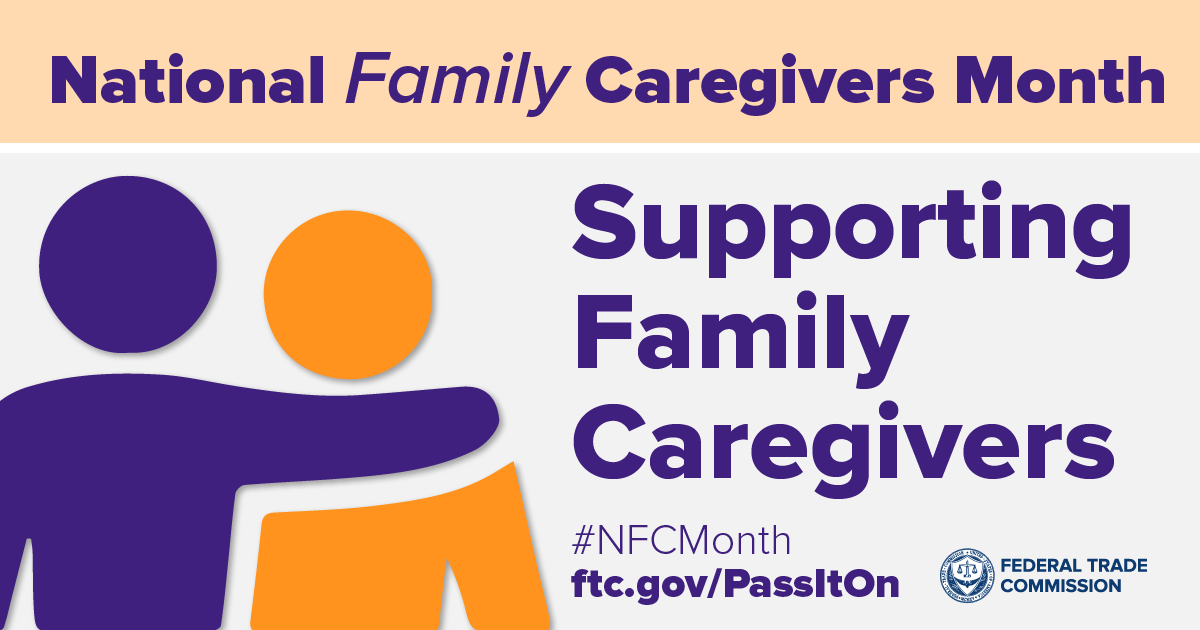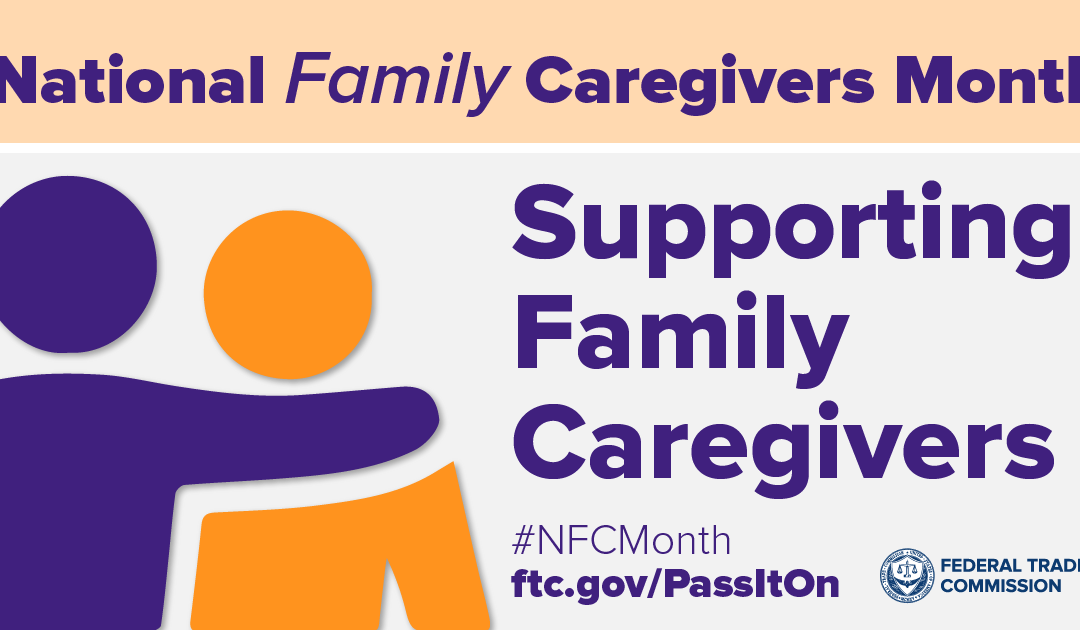This article was originally posted by the FTC. See the original article here.
 Family caregivers are the biggest source of support for older adults and people with disabilities in the U.S. If you’re one of the busy people who prepares meals, drives to medical appointments, helps pay bills, and visits someone regularly, you’ve seen the tremendous difference your contributions make in their life. You may also have warned them about the scams that may come through their phone, email, or mailbox. We know it takes a lot to be a caregiver, and during National Family Caregiver’s Month, we’ll publish a series of blogs to share resources and suggestions that could make your days a bit easier.
Family caregivers are the biggest source of support for older adults and people with disabilities in the U.S. If you’re one of the busy people who prepares meals, drives to medical appointments, helps pay bills, and visits someone regularly, you’ve seen the tremendous difference your contributions make in their life. You may also have warned them about the scams that may come through their phone, email, or mailbox. We know it takes a lot to be a caregiver, and during National Family Caregiver’s Month, we’ll publish a series of blogs to share resources and suggestions that could make your days a bit easier.
First, we’ll explain how to avoid and stop the unwanted calls that seem to come when you’re waiting for an important call, or sitting down to relax. Then, we’ll share advice about claims to watch out for if you’re interested in a dietary supplement and how to spot false or misleading ads for treatments. Finally, because many caregivers are interested in work with flexible schedules, we’ll show some warning signs of scam job ads for mystery shoppers, personal assistants, re-shipping clerks, and other jobs. We’ll tell you how to spot and avoid the scammers that are after your money and personal information.
Find more articles about common scams that affect older adults, including home repair scams, identity theft, and calls from fake “grandchildren” at Pass It On. If you spot a scam, or consumer problem, please tell the FTC at ReportFraud.ftc.gov.
Brought to you by Dr. Ware, Microsoft Office 365 Silver Partner, Charleston SC.



Recent Comments